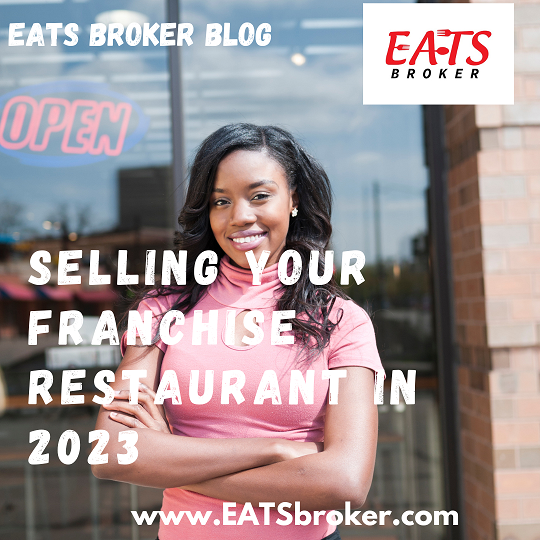Are you thinking about selling your franchise restaurant in 2023? We have finished the Holiday season, and now it’s time to get ready to start a new year with new challenges. Some of the most seasoned restauranteurs, managers, and employees exited the restaurant industry in 2022.
The challenges of labor rate inflation, labor shortage, food inflation, and Covid relief funds no longer available will have some restaurant owners ready to sell in 2023. Selling a franchise restaurant has different challenges than selling an independently owned restaurant.
Texas Restaurant Broker Dominique Maddox says, “selling a franchise restaurant is more complex than selling a non-franchise. Regarding Restaurant Franchise Resales, you are dealing with transfer fees, restaurant upgrades required, training requirements, and Franchisor approval”.
Selling a Franchise Restaurant vs. a Non-Franchise restaurant has pros and cons for each transaction. Franchise Restaurants’ popularity keeps growing, and more franchise restaurants are opening daily. Franchise resales usually get more buyer inquiries compared to non-franchise brands.
EATS Broker lists the differences between Selling a Franchise Restaurant vs. Non-Franchise -Pros and Cons.
Selling a Franchise Restaurant: Advantages
- Books and records are usually clean and accurate. Franchise Brands will require Franchisees to have an updated POS Sales System to track sales.
- Restaurant Valuations are usually higher because the multiple ranges from 2.5x-3.25 ex. ($100,000 profit x 2.5 = $250,000 listing price)
- Franchisees benefit from the Franchisor’s trade Name, logo, goodwill, and trademark secrets.
- Landlord approval for a lease assignment or a new lease can be more accessible. Landlords like having franchise brands in their shopping centers.
- Bank lending is more likely to be approved when applying to buy a Franchise Brand.
- Franchisors will provide training support to Franchisees. A Franchise Business Consultant offers ongoing support.
Selling a Franchise Restaurant: Disadvantages
- Franchise Royalties are collected weekly or monthly from the gross sales. Franchise royalties range from 3%-12%.
- National Marketing Fees are collected weekly or monthly from the gross sales. The fee ranges from 1%-5%
- A transfer Fee is required when a current Franchisee wants to sell a restaurant. The fee ranges from $5,000-$50,000, depending on the Franchise Brand.
- Required training for new franchisees can range from 2 weeks-12 weeks. Buyers are usually required to pay for travel and lodging.
- Remodel costs or upgrades can be required before a Franchisee can sell to a new buyer. These costs can range from $10,000-$200,000 or more.
- The Franchisor has to approve the new buyer.
- Preferred Vendors are usually in place, and Franchisees don’t have the flexibility to shop with other vendors.
Selling a Non-Franchise Restaurant: Advantages
- Fewer requirements to get a deal done
- Buyers don’t have extra fees when buying a franchise restaurant, like royalty or marketing fees.
- Don’t have to worry about Franchisor not approving the new buyer
- No training is required before a new buyer can take ownership
- Non-franchise restaurants transactions can closer quickly
- A new buyer can change the concept if the landlord approves
Selling a Non-Franchise Restaurant: Disadvantages
- Books and records have a better chance of not being accurate or don’t exist.
- Landlord approval for a lease assignment or new lease can be challenging if the new buyer doesn’t have restaurant experience.
- Restaurant Valuations are usually lower because the multiple ranges from 1.75x-2.5x ex. ($100,000 profit x 1.75 = $175,000 listing price)
- Training a new buyer is informal and sometimes not enough to ensure the new buyer will be successful. There usually is no ongoing support.
- Non-franchise brands don’t have goodwill and brand awareness.
- Most don’t have systems or manuals for food preparation, operational, staff, or back-of-house procedures.
Which is better depends on the individual that wants to sell a restaurant and the buyer. Both concepts have pros and cons that should be considered when buying or selling a restaurant.
For more information on the restaurant market and other available consulting services or complimentary restaurant valuations, contact Dominique Maddox at 404-993-4448 or email at [email protected]. Visit our website at www.EATSbroker.com.


